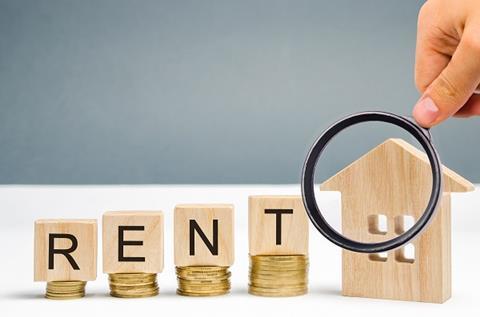Calls for new rent settlement intensify after September inflation figure drops to 1.7%.
Social landlords in England will be allowed to increase their rents by 2.7% in 2025/2026.

Today’s release of the September consumer price index (CPI) inflation figure means the sector now knows the maximum rent increases for social homes in the final year of the current rent settlement.
Social landlords can increase rents by the September rate of inflation plus one per cent. Today the Office for National Statistics said the CPI figure for September is 1.7%, lower than expected by analysts.
This figure is down from 2.2% on August and is the lowest CPI figure since April 2021.
The confirmation of the rent increase is likely to intensify calls in the social housing sector for the government to provide certainty over future rents post-2026.
It has been widely reported that chancellor Rachel Reeves is considering introducing a ten-year CPI plus 1% settlement in this month’s budget, a move that would be welcomed by many in the sector as providing rental income certainty.
However Andy Hulme, chief executive of Hyde Group, said the government, if it wants to boost social and affordable housing, needs to go further than introducing a ‘business as usual’ CPI plus 1% settlement alone.
He said: “The latest inflation figures demonstrate that the CPI+1% formula used to calculate social rents continues to be insufficient to meet the growing costs social housing providers face in maintaining customers’ homes.
“At Hyde, we’ve seen demand for repairs increase by more than 60% since 2021, while the cost of materials for repairs has soared – greatly exceeding core inflation and the rents we can charge.”
>>See also: Rent policy changes put 300,000 social homes at risk of becoming unsustainable, warns G15
He said for the past decade “rent-setting policy has been disconnected from the reality of maintaining and investing in customer’s homes”
Hulme said in addition to a “welcome” long-term settlement, the government must reintroduce rent convergence and provide funding for the next Affordable Homes Programme.
Historically, the level of social housing rent residents pay to councils and housing associations has varied depending on when and where their home was built. To counter this, from 2002, the government allowed cheaper rents to increase by the Retail Prices Index (RPI) + 0.5% and a maximum of an additional £2 per week, every year. But this policy was scrapped in 2015 and the G15 group of housing associations has said this decision has cost its members £2bn.
Rachael Williamson, head of policy and external affairs at Chartered Institute of Housing, pointed out the lower-than-expected inflation rate will provide relief for social housing tenants but said the sector faces significant financial challenges. She said : “Rent increases are inevitably a balance between affordability and financial stability”.
She added: “As we approach the final year of the current rent settlement, it’s crucial that we find sustainable solutions that support both the long-term viability of the sector and the financial well-being of tenants. The forthcoming budget and spending review is an opportunity to do so.”











No comments yet